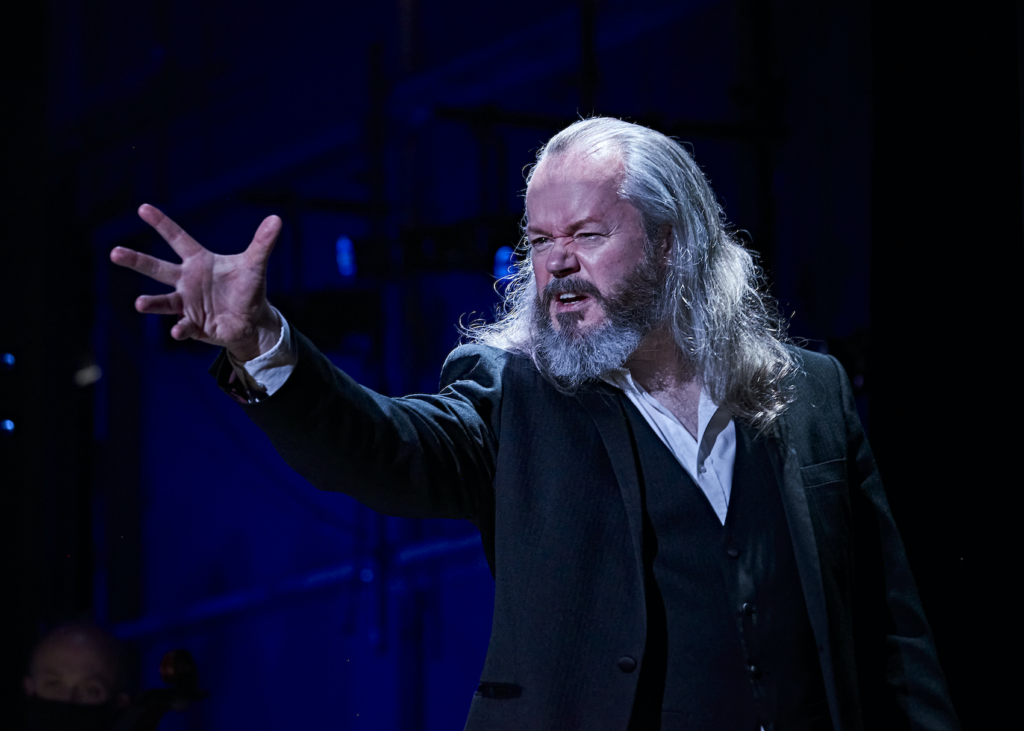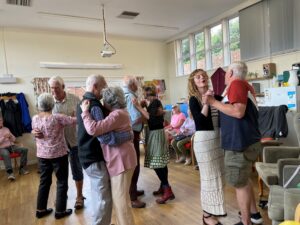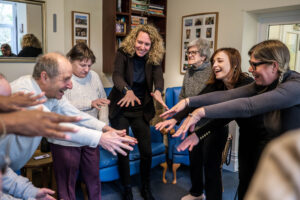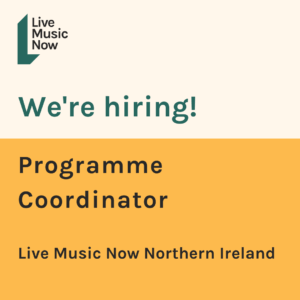Live Music Now artist and singer Mimi Doulton interviews Live Music Now alumnus, the bass-baritone Paul Carey Jones about his time on the scheme, returning to work after the pandemic, and his new book ‘Giving it Away’.
Mimi: Tell me about your time with Live Music Now.
Paul: I joined the scheme towards the end of my time at music college with the pianist Llŷr Williams. I’d come to singing from being a teacher, so I did have another income stream at the beginning of my career, but what Live Music Now did was give me an income stream that meant I could support myself financially as a singer. In terms of finding yourself as a performer, the number of concerts you do with Live Music Now is priceless, and it’s so valuable for your self-esteem to make a living from performing.
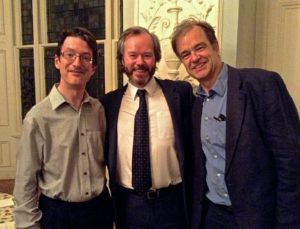
Mimi: That segues nicely into the title of your book ‘Giving it Away’. The book is derived from a series of blog posts, but what inspired you to publish your thoughts in print?
Paul: I had always kept a blog over the years, but it had been very sporadic as I didn’t feel I had enough time or energy to devote to it. When lockdown hit in March 2020 I decided to try and find something to write about once a week. I didn’t set out to write about the state of the industry every time, but there was so much happening on that front that it became the theme…
By October my writing had begun to generate a fair amount of interest, particularly the article ‘Giving it Away’. I thought everybody would be keeping a lockdown diary – but as it transpired, they weren’t and so I began to think about how I could make my work more accessible. Knowing how long it might take to find an established publisher, and given the topical nature of the content, I decided to publish via Amazon’s Kindle set-up, meaning the book could get out there almost immediately – although I know a lot of potential readers do have mixed feelings about Amazon as a company, which I fully understand. Thanks to some good reviews the book began to gather attention fairly quickly – in fact I had a mention in the Times Literary Supplement the other week. It seems that not many people from our side of the industry have written about what was going on during the pandemic.
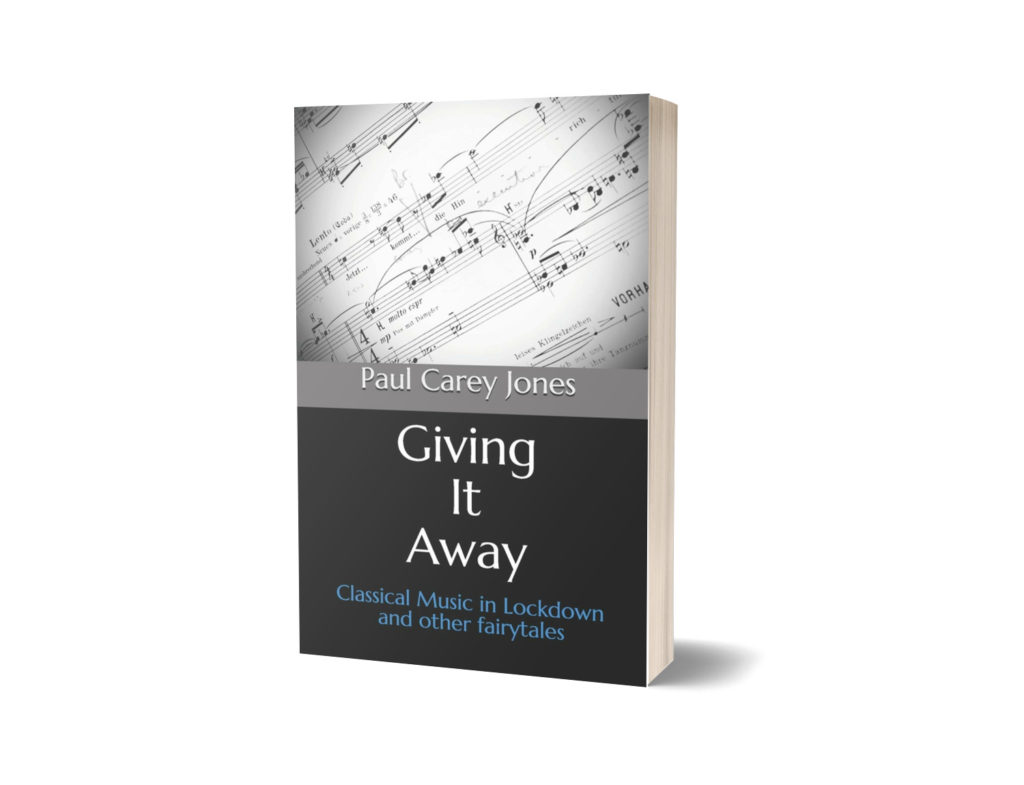
Mimi: It was brave of you to write about this, as you are quite blunt about the realities of our industry.
Paul: The number one criterion I set myself was to be honest. As singers, we perceive that we are expected to present a glossy, ‘airbrushed’ version of our lives, but I saw this as an opportunity for change.
Mimi: How has it gone down with colleagues in the industry, but also with audiences who don’t know what it is like on the inside?
Paul: Maybe the backlash has been in secret, but what’s pleasantly surprising is how I haven’t experienced one, at least not yet! I’ve been careful not to have a go at individuals as I believe that most people have the best of intentions; I’ve tried to keep any criticism or observations to the systemic aspect of things. Sometimes that means giving individuals as an example, but I think it is the system that requires study and reform – or at least consideration. The system we have has just evolved: nobody designed it; nobody intended for our industry to be run in this way.
Mimi: And does anybody benefit from it being run like this?
Paul: It’s interesting to think about who loses out if things change. In many branches of the industry, the people who currently survive are those with the greatest financial resources to fall back on…
Mimi: This problem seems to have got worse over the years, even though we are talking about it more. But perhaps we are talking about it more because it has got worse!
Paul: If we consider how many young people are entering the process of training to become professional singers, there isn’t a healthy feedback loop – there is very little connection between the supply of singers into the industry and the demand for singers. The supply is controlled by music colleges who need a certain number of students per year to support operations; there is no incentive for them to limit the supply according to the industry’s needs. Over the years, demand has decreased and supply has increased. There is only one way this goes, and that is that singers’ fees decrease to the point where nobody can make a living doing this career.
Mimi: Let’s talk about your chapter ‘Freelancers and Impotence’. It feels like younger singers are pretty impotent when it comes to asking for better pay – nobody cares because they are just happy to be being paid something. Do you think the last year will change the amount of agency we feel we have?
Paul: Not in itself, no. In fact, in the short term I think the problem has got worse as everybody has ‘pitched in’, in recognition of the fact the industry needs to get back on its feet. The danger is that what started out as emergency measures might become permanent measures.
The fee situation was already in crisis before Covid; actually there are very few problems in the industry that did not exist pre-Covid. Now we’ve shown that opera is back, the question is how do we improve on what we had before, and do we want to do that? If we don’t, what are the consequences?
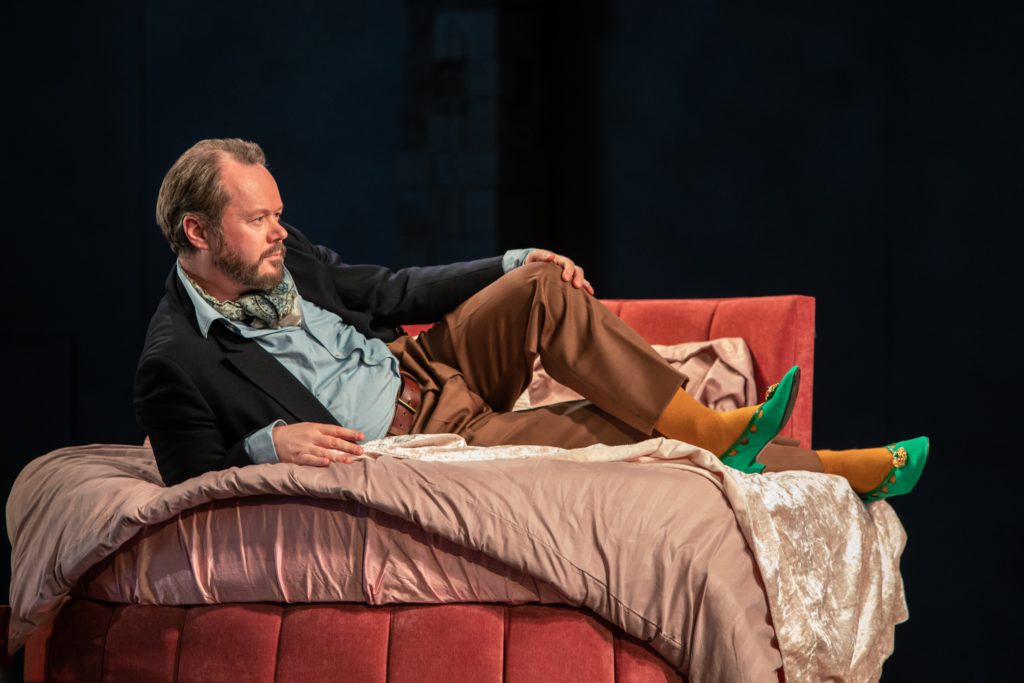
Mimi: It sounds like there’s another book in that…
Paul: Well, this year I’ve been a lot more pre-occupied with writing about Brexit, which won’t become a book as things aren’t changing at the same pace, plus I sense that most people are pretty fed up with reading about the whole situation…
Mimi: Has your idea of British Voices, British Stories manifested in any way?
Paul: No, although there are signs of people thinking about it. There are a few good examples of companies looking at British-based, or even local, talent. Over the last 40 or 50 years we have become obsessed with globalising the industry. In many ways, this is a positive thing – musical culture does cross national boundaries and that’s beautiful; but many organisations have lost touch with their communities.
Mimi: It is that question of flying in ‘diversity’ that you touch on at the end of your book?
Paul: I think it is easy to look at diversity and provide a quick fix using international talent, but for me the genuine diversity happens when the diversity of the local community is reflected on and offstage. Setting targets to solve the problem in the short-term isn’t fixing the problem, and can potentially further remove the artistic organisation from its community. I think sometimes it is easier for organisations to operate on the carbon-addicted, globalised, international, glamorous level, and yet at its best, opera can engage with its own roots and local community. How do you reconcile those two things?
MD: And does that then suggest some communities are and others aren’t seen as being glamorous?
Paul: Exactly. You scratch the surface of that ‘glamorous’ international scene and it is only skin-deep. This is not a recent problem. You talk to singers from anywhere in the world and often they haven’t sung at their local houses.
This isn’t just about casting, it is also about the actual works that are being presented. We need to look at the repertoire we are performing; a lot of the subject matter, narrative and balance of voices is very old-fashioned – but opera is addicted to this material. This is linked to the fact that organisations producing work have become separated from their communities. A lot of the criticism that rightly or wrongly gets thrown at opera can only be solved by producing new work.
Mimi: …and a breadth of new work.
Paul: Yes, ultimately by re-engaging with the community you will produce the works that your audiences want to hear. I work on a lot of contemporary pieces and sometimes there is a sense of the industry talking to itself. Who is the audience, where are they and why would they want to hear this?
Mimi: How have you found coming back to work? Have the audiences been there?
Paul: The audiences have been amazing. My first job back was purely filmed and broadcast online, and I found the first day back utterly terrifying. It had been a full year since I had sung in front of anyone and I wasn’t sure if I would remember how to do my job, although once we’d got up and running it was like riding a bike.
The first time back in front of an audience was Wagner’s Die Walküre at Longborough. The first couple of nights both performers and audience were quite tentative as it all felt very unfamiliar and different – I was expecting there to be an explosion of emotion, and it wasn’t quite there until the third night. I think there was something at the back of our minds asking, ‘is this safe?’ I can’t quite explain why, but somehow after three performances the synergy between stage and audience took off and the piece caught fire.
I went straight on to L’amico Fritz at Holland Park after that, and whilst there was a sense that people were glad to be back, there was also a fragility and precariousness. We know we are back but we also know how many sacrifices have been made. There is a general sense that we are not back to normal yet, rather that this is a version of normal, and we’re not quite sure what comes next…
I think that sometimes performers give the impression that the point of a performance is ‘living the dream’ – but that runs the risk of undermining our whole art-form, by putting the performer at the centre of it, rather than it being an equal, shared experience. For it to be art, our work has to exist in the minds, hearts and souls of the audience. Something I learned on my time at Live Music Now is that it doesn’t matter how you feel something went, what matters is the audience experience. It’s a really hard lesson for performers to learn, but essential in terms of how we value ourselves.
Mimi: Lovely talking to you, Paul.
Paul: Likewise, thanks for taking the time to chat.
If you’d like to purchase Paul’s book “Giving It Away”, please click here.
